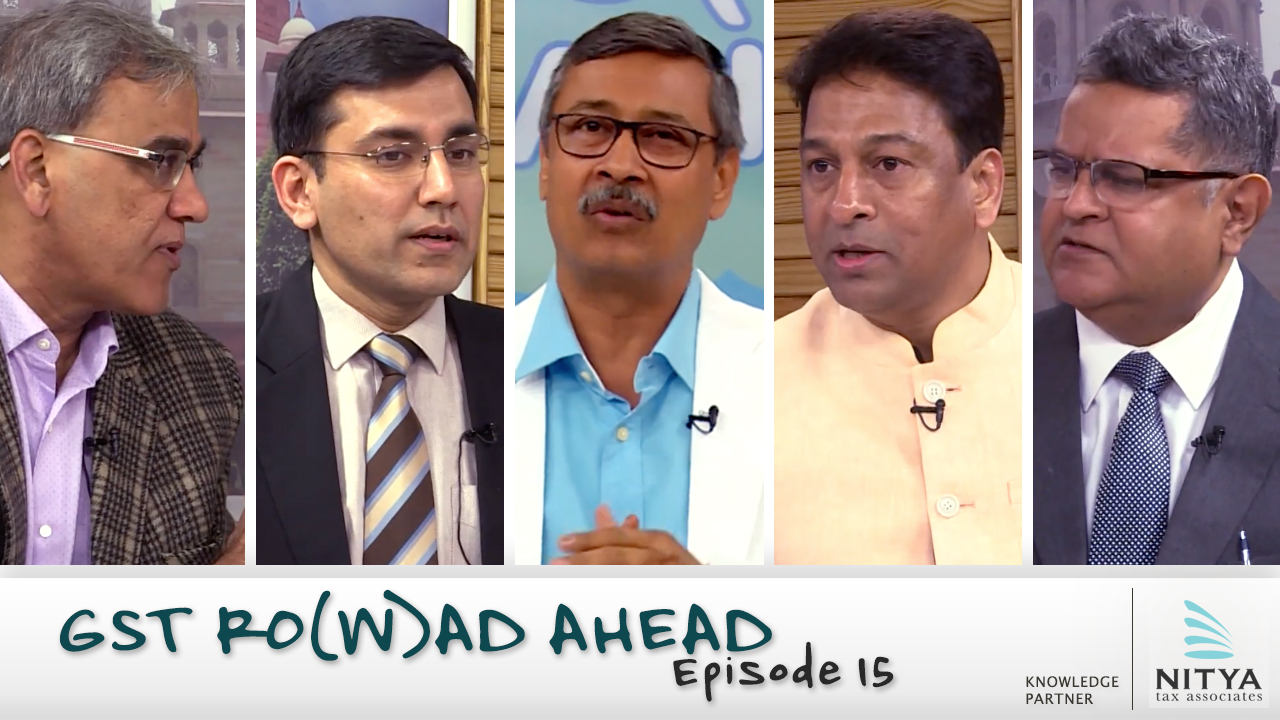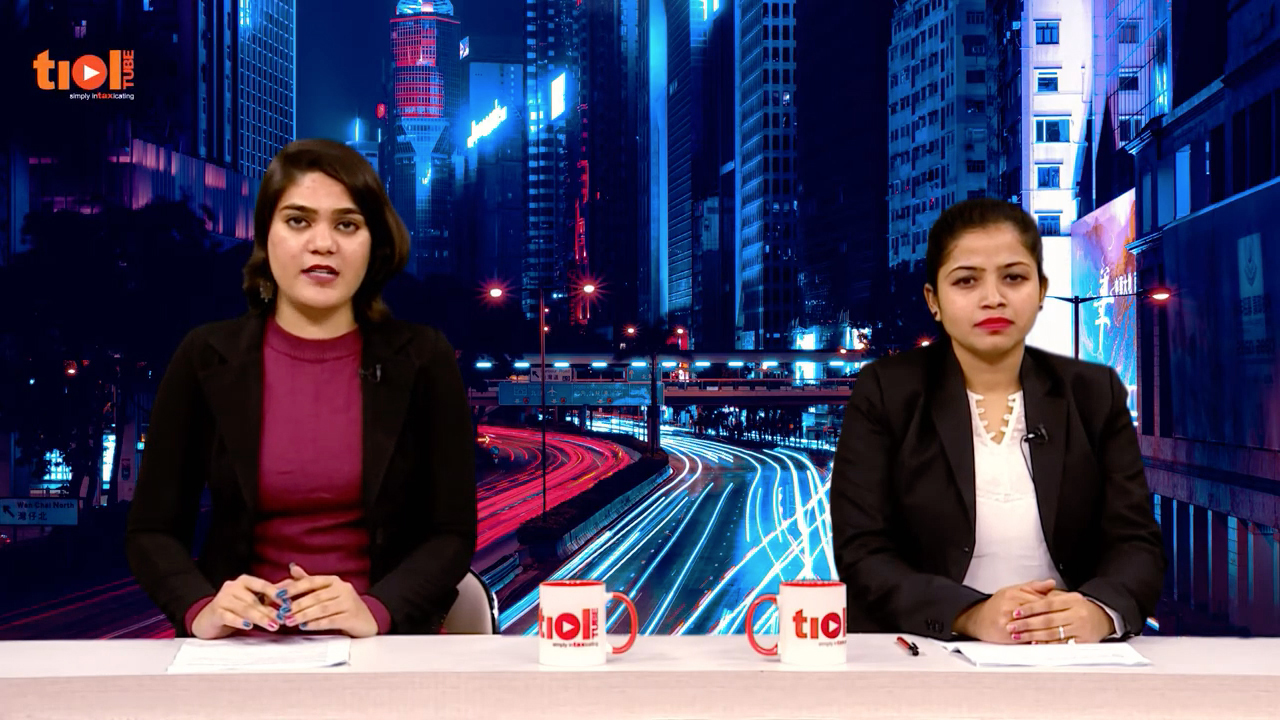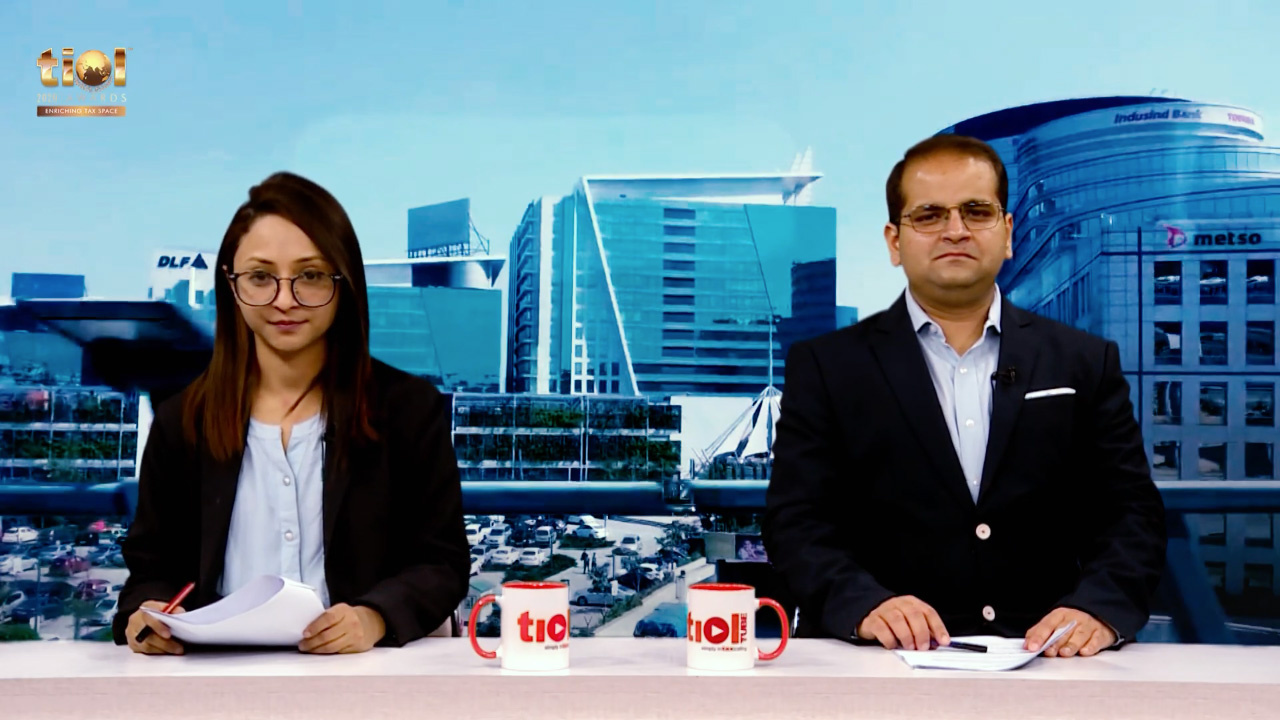| SERVICE TAX
2020-TIOL-711-CESTAT-MUM
GF Toll Road Pvt Ltd Vs CCT & GST
ST - Issue is charging of interest and imposition of penalty on credit, though admittedly taken without eligibility, that was reversed without being utilised.
Held: By no stretch, can accumulated credit claim to acquire the status of 'legal tender' or its surrogate, as a 'negotiable instrument', and the debit in such account is neither a monetisation for the Treasury nor representative of an obligation under the taxing statute that is forgone by executive fiat on the authority of legislative delegation - It is for that reason, and considering the breadth of the scheme of giving effect to the 'taxable event' in the statute of levy, that the reversal of credit before utilisation was held to be as good as non-availment of credit in the first instance - reversal of credit before issue of show cause notice renders the taking of credit to have been erased ab initio - There is not even a whiff of allegation that the credit reversed had been utilized, or could have been utilized, to the detriment of the exchequer - foundation of the confirmation of demand, charging of interest and the imposition of penalty is built upon sand - Bench cannot endorse confirmation of these liabilities and, therefore, sets aside the impugned orders to allow the appeals: CESTAT [para 9, 10, 16, 18]
- Appeals allowed: MUMBAI CESTAT
2020-TIOL-710-CESTAT-ALL
UP Project Corporation Ltd Vs CGST, C & CE
ST - The assessee in terms of Section 102 of FA, 2016 applied for refunds under Section 11B of CEA, 1944 as made applicable to the Service Tax matters vide Section 83 of the Act - The Original Adjudicating Authority as also Appellate Authority rejected the refund claims on the ground that the same stands filed by the branch office whereas the service tax has been paid by their head office - As such the Original Adjudicating Authority does not have any jurisdiction to pass said refund claims - An identical issue was considered by this Bench in assessee's own case vide Final Order dated 23/10/2018 wherein the impugned orders were set aside and matters were remanded to the Original Adjudicating Authority - It was observed that in that case, the Original Adjudicating Authority is of the view he has no jurisdiction to deal with refund claims, as the same would be transferred to the appropriate authority for further dealing with the same - By following the said order, the impugned order is set aside and the matter is remanded for taking appropriate action: CESTAT
- Matter remanded: ALLAHABAD CESTAT
CENTRAL EXCISE
2020-TIOL-709-CESTAT-DEL
Radha Sarveshwar Min Chem Vs CCE & CGST
CX - Whether the assessee is entitled to benefit of reversal of proportionate credit under Rule 6 (3A) of CCR, 2004 as introduced w.e.f. 1.4.2016 with retrospective effect, or whether they are liable to pay duty under Rule 6(3)(a) at appropriate rate by way of reversal of cenvat credit, as they are maintaining a common account of cenvat credit for manufacture of taxable goods and for trading, which is an exempt service - Commissioner (A) has failed to extend the benefit of provisions of Rule 6(3AA), under which an assessee is required to reverse only proportionate amount attributable to exempted services of trading, same is set aside and the assessee is entitled to benefit of proportionate reversal with interest, as prescribed under 6 (3AA) - Sofar as the issue of valuation as regards the amount of subsidy disbursed to assessee in the form of vouchers in form 37 B, which the assessee has utilized in discharge of its VAT/Sales liability is concerned, whether the same will form part of the transaction value - The said issue has been decided by Division Bench of Tribunal in favour of assessee in the case of Shree Cement 2018-TIOL-748-CESTAT-DEL - Accordingly, this ground is allowed in favour of assessee: CESTAT
- Appeal allowed: DELHI CESTAT
2020-TIOL-708-CESTAT-DEL
Rose Zinc Ltd Vs CCGST, CE & CC
CX - During the course of audit, it was observed that there was considerable difference in the quantity of various excisable goods manufactured as shown under the heads of manufactured, cleared and under closing balance in the records maintained for central excise purpose vis-a-vis quantity shown in the balance sheet for the financial year 2008-2009 - proceedings were initiated against assessee by way of issuance of a show cause notice dated 21.2.2013 alleging evasion of duty to the extent of Rs. 30,22,661/- - demand confirmed along with imposition of penalty, interest etc. - as order upheld by Commissioner(A), assessee in appeal before CESTAT.
Held: Admittedly, the entire case of the Revenue is based upon the mis-match of quantities as reflected in the excise records and the account records of the assessee - There is no evidence to show the receipt of the excess raw materials, manufacture of the excess final product and transportation of the same as also the identification of the customers - It is well established that the onus to prove the charges of clandestine removal lies very heavily upon the Revenue and is required to be discharged with production of sufficient positive evidences and the same cannot be based upon assumptions and presumptions - Admittedly, in the present case, there is no evidence produced by the Revenue indicating the clandestine clearance of the goods except the difference in the figures - The same cannot be adopted as sufficient evidence for upholding the charge of clandestine removal - impugned order set aside and appeal allowed: CESTAT [para 7, 8]
- Appeal allowed: DELHI CESTAT
CUSTOMS
2020-TIOL-914-HC-MAD-CUS
Cochin Air Cargo Clearing House Vs CC
Cus - The petitioners operate as Customs Brokers - During the relevant period, the petitioners received an order for shipment of Air inlet automobile spare parts from a new customer - After receiving KYC form, GST Number, IEC certificate and other details, the petitioners accepted the shipment from the Tiruchirapalli airport - On obtaining the shipment bills number from the exporter, the petitioners received the goods at the airport and sent the same for Customs clearance - However, Customs officer concerned detained the goods - Therafter, letter was sent to the petitioners alleging that the goods were overpriced - The exporter replied to such letter, stating that the goods meant for export were neither prohibited nor unlawful - The petitioners were issued summons and they appeared for hearing - Later, the petitioners claimed that the Customs officer concerned was harassing them ans filed a contempt petition against the Commr. of Customs (Preventive) of the jurisdiction concerned - The petitioners also claimed that the Customs officer concerned harassed them by calling them for official inquiry several times - Meanwhile the High Court directed the authorities concerned to refrain from harassing the petitioners and to complete the investigation in one month's time - The Customs officer proceeded to issue an SCN much after such one month period - Hence the present writ petitions.
Held - Considering that the time for replying to the SCN has lapsed, the petitioners are permitted to canvass all their points before the adjudicating authority through a proper reply on or before 31.03.2020 - Thereupon, the Commr. of Customs (Preventive) would complete the adjudication proceedings in respect of the SCN and passed appropriate order in one month's time: HC
- Writ petitions disposed of: MADRAS HIGH COURT
2020-TIOL-707-CESTAT-DEL
Vinayak Cargo Vs CC
Cus - The appeal stands already dismissed vide final order in 2019-TIOL-1069-CESTAT-DEL which was dictated in open court itself - The said final order reveals that after dictating & pronouncing the order in court another decision bearing final order dated 06/11/2018 where the Member (T) Shri Bijay Kumar with Member (J) Shri Anil Choudhary had taken a divergent view, Shri Bijay Kumar, who is the Member (T) for the present final order as well, with an intent to do away contradiction, if any, in the orders of coordinate bench, gives the opportunity to the parties to submit as to whether the two decisions are so contradictory that a reference need to be made to the Larger Bench - The assessee is not interested in giving any explanation about contradiction, if any, in the decision of two coordinate benches nor seems aggrieved thereof despite the opportunity was given vide the final order dated 5 March 2019 - Thus, the absence of assessee consecutively for almost five times since the impugned final order was passed, is sufficient to hold non-prosecution on the part of assessee - Resultantly, no further finding is required for disposal of the appeal which already stands dismissed on the same ground as being discussed in the final order - The findings of the said final order is re affirmed which has already pronounced: CESTAT
- Appeal dismissed: DELHI CESTAT
2020-TIOL-706-CESTAT-AHM
Indian Farmers Fertilizers Vs PR CC
Cus - Valuation - Appellant (IFFCO) claims that it imports and distributes in India urea that is imported on Government Account by the Department of Fertilizers through canalising agencies like the State Trading Corporation (STC) and Minerals and Metals Trading Corporation (MMTC) - Urea being a canalised item, the import requirement is made known to the canalising agencies called State Trading Entities (STE) - STE pays the full import price to the exporter and the Government of India pays this import price to STE - IFFCO, on the other hand pays "pool issue price" to the Government of India - Thus, for example, if STE purchases urea at 300 US$ per MT from the exporter, the Government of India pays 300 US$ per MT to STE - However, IFFCO would pay "pool issue price" of Rs.5110 per MT (approximately 83 US$ per MT) to the Government of India as per the agreement and this is the price at which IFFCO sells urea to the farmers - The differential amount is borne by the Government of India as a subsidy to the farmers - IFFCO, however, pays customs duty on the price paid by STE to the exporter, that is 300 US$ per MT - Subsequently, in view of a communication dated 2 February 2015 sent by the Assistant Commissioner mentioning therein that the Government of India was also paying Rs.17/- per MT as service charges to STE, IFFCO started adding this miscellaneous charge in the Bill of Entry dated 4 April 2015 in the assessable value for the purpose of payment of duty - SCN dated 12 August 2015 was issued to the Appellant (IFFCO) mentioning therein that the service charges of Rs. 17/- per MT were in the nature of "miscellaneous charges" and accordingly, were required to be included in the assessable value from 5 October 2010 to 5 May 2015, in view of the provisions of rule 10(1)(e) of the Customs Valuation Rules, 2007- SCN further mentions that STE purchased urea of its own and then sold it to Indian buyers on High Sea Sale basis; that, therefore, the purchases made by STE from foreign sellers and subsequent sale to Indian buyers are independent transactions; that 2% High Sea Sale Commission should be included in the assessable value for calculation of Customs duty; that the value declared should should not be rejected under rule 12 of the Rules, 2007 and re-determined as Rs.63,68,08,88,946/-; that the quantity of 3032282.5 MTs imported should not be held liable for confiscaation u/s 111(m) of the CA, 1962; that the differential Customs duty amounting to Rs.7,64,84,141/- should not be demanded in respect of the 57 finally assessed Bills of Entry; that differential Customs duty amounting to Rs.44,98,936/- for 03 provisionally assessed Bills of Entry; that the differential duty of Rs.30,41,704/- and interest of Rs. 9,37,680/- paid by the notice in reference to Misc Charges for the said period should not be adjusted against the demand; that penalty and interest should not be imposed etc. - in adjudication, the Principal Commissioner, however, did not accept the contentions of the Appellant and after rejecting the declared value, re-determined it - Accordingly, the demand of differential customs duty was confirmed and the urea imported by IFFCO was held liable for confiscation u/s 111(m) of the Customs Act and interest was also directed to be paid and penalty was also imposed - aggrieved, appeal filed before CESTAT.
Held:
Issues that arise for consideration are -
(i) Whether for the purchase of urea by the Appellant from the Government of India on High Sea Sale, miscellaneous charges of Rs.17/- per MT paid by the Government of India to STE is required to be included in the assessable value and consequently duty payable on it;
(ii) Whether in regard to the aforesaid purchase of urea by the Appellant from the Government of India on High Sea Sale, notional 2% High Sea Sale Commission is required to be included in the assessable value of goods [CBEC Circular dated 11 May 2004 refers] and consequential duty is payable;
(iii) Whether the extended period of limitation could have been invoked in the facts and circumstances the case for both non-payment of miscellaneous charges and notional High Sea Sale Commission;
(iv) Whether urea imported by the Appellant was liable for confiscation under section 111(m) of the Customs Act;
(v) Whether penalty could have been imposed on the Appellant under section 112(a) of the Customs Act; and
(vi) Whether penalty could have been imposed on the Appellant under section 114 of the Customs Act.
MISCELLANEOUS CHARGES OF Rs.17/- PMT [para 20 to 22, 29, 30, 31]
+ In the first letter dated 12 November 1991 (sent by the Ministry of Chemicals and Fertilizers in the Government of India), it has been clearly stated that Rs.17/- per MT shall be payable by the Government of India to MMTC (which is also a STE apart from State Trading Corporation) as service charges for import of urea on behalf of the Government of India. The second letter dated 2 February 2015 also emphasises that urea is imported for direct agriculture use on Government account through STEs and that "these agencies" are paid Rs. 17/- per MT as service charges on the urea imported by them on Government Account. The "agencies" referred to are the STEs i.e. MMTC, State Trading Corporation Limited and Indian Potash Limited.
+ This apart, what needs to be noticed is that TDS has also been deducted by the Government of India while making payment of service charges to the STEs. Under the Income Tax Act, TDS is required to be deducted on payment of commission and not on sale consideration. Thus, the Government of India itself is treating this amount of Rs.17/- per MT as commission paid to the STEs.
+ It also needs to be noted that the amount of Rs. 17/- per MT is paid by the Government of India to the STE and is not paid by the Appellant to the STE when it purchases the urea. It, therefore, clearly transpires that the canalising agencies import urea on behalf of the Government of India for which they are paid commission of Rs.17/- per MT for identifying and indenting the import of urea from foreign suppliers.
+ In the present case, the STE buys urea on behalf of the Government of India. The STE in fact represents the Government of India abroad and the foreign sellers know that the urea will be ultimately purchased by the Government of India. It is the Government of India that ultimately sells urea to the Appellant and the Appellant sells urea to the farmers. The decision of the Supreme Court in Hyderabad Industries Limited, therefore, does not help the respondent Revenue.
+ Rule 10(1)(e) provides that in determining the transaction value there shall be added to the price actually paid or payable for the imported goods, all other payments actually made or to be made as a condition of sale of the imported goods, by the buyer to the seller, or by the buyer to a third party to satisfy an obligation of the seller to the extent that such payments are not included in the price actually paid or payable. This rule speaks of payment made or to be made by the buyer to the seller, or by the buyer to a third party. The seller in the instant case is the Government of India and the buyer is the Appellant. This amount of Rs. 17/- per MT has neither been paid by the Appellant to the Government of India nor the Appellant paid this amount to a third party. This amount of Rs.17/- per MT, therefore, could not have been included in the 'transaction value' under rule 10(1)(e) of the 2007 Valuation Rules.
+ Since the aforesaid payment of Rs. 17/- per MT has not been made as a condition of sale of urea by the Government of India to the Appellant to satisfy an obligation of the Government of India, this amount cannot be added to the transaction value under rule 10(1)(e) of the 2007 Rules.
ADDITION OF 2% NOTIONAL HIGH SEA SALE COMMISSION [para 44, 45]
+ It needs to be noted that the Circular dated 11 May 2004 was issued during the period the unamended section 14 of the Customs Act was in force. Thus, while there was scope for addition of notional charges in the assessable value under the unamended section 14 of the Customs Act, but after the actual sale price concept was introduced in the year 2007 on the basis of GATT guidelines and section 14 of the Customs Act was amended in 2007, any inclusion of notional charges seems to have lost its relevance and only actual cost incurred by the buyer is required to be considered.
+ It is, therefore, clear that 2% Notional High Sea Sale Commission could not have been added to the assessable value.
Conclusion: [para 46, 47]
++ Neither the amount of Rs. 17/- per MT paid by the Government of India to the STE could have been added to the assessable value on which the Appellant was required to pay duty, nor 2% Notional High Sea Sale commission could have been added in the assessable value. The confirmation of demand under these two heads, therefore, cannot be sustained.
++ Such being the position, the order passed for confiscation of urea under section 111(m) of the Customs Act and the imposition of penalty are also liable to be set aside and is set aside.
++ Order dated 30 March 2016 passed by the Principal Commissioner is set aside and the Appeal is allowed.
- Appeal allowed: AHMEDABAD CESTAT |











